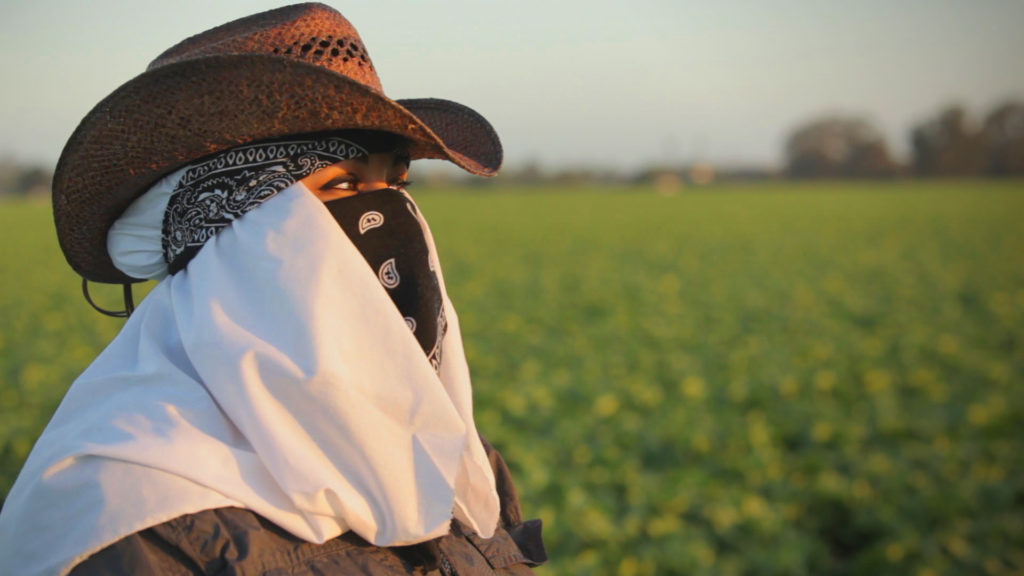Meet Immigrant Women Who Spoke Out About Sexual Abuse at Work

December 7, 2017
Share
This week, TIME magazine named as its 2017 Person of the Year “the silence breakers,” victims of workplace sexual assault and misconduct who in coming forward to share their stories have helped expose abuses in the highest levels of politics, media and entertainment, and sparked a national movement.
The women and men who have spoken out, TIME wrote, “have started a revolution of refusal, gathering strength by the day, and in the past two months alone, their collective anger has spurred immediate and shocking results: nearly every day, CEOs have been fired, moguls toppled, icons disgraced. In some cases, criminal charges have been brought.”
In the TIME report, actress Ashley Judd described her confusion about how to respond to a 1997 encounter with powerful movie magnate Harvey Weinstein.
“When movie stars don’t know where to go,” TIME wrote about Judd, “what hope is there for the rest of us? What hope is there for the janitor who’s being harassed by a co-worker but remains silent out of fear she’ll lose the job she needs to support her children?”
That dilemma was illuminated in two FRONTLINE investigations about sexual assault in the workplace: Rape in the Fields (2013) and Rape on the Night Shift (2015).
The investigations uncovered the hidden reality faced by immigrant women who pick, grow and handle the food we eat, and those in the janitorial industry who clean our malls, banks and places of work. Produced in collaboration with the Investigative Reporting Program at UC Berkeley, Univision, Reveal from The Center for Investigative Reporting and KQED, the films found that women in these sectors are particularly vulnerable to sexual violence, and that many dare not denounce their attackers for fear they’ll lose their jobs or be deported.
Despite those risks, women went on camera to break their silence.
First, in Rape on the Fields, several women shared allegations of abuse spanning from the almond groves of California’s Central Valley to the tomato fields of Florida — and the investigative team examined how both law enforcement and agribusiness itself have responded to the problem.
“This type of thing did not only happen to me. It was happening to many, many more women,” farmworker Maricruz Ladino told the investigative team about her alleged abuse at the hands of a supervisor. “And if I stay quiet, then it is going to keep happening. That’s why I want to talk about it now, so that everybody can see themselves in me, so that they won’t stay quiet anymore.”
Two years later, in Rape on the Night Shift, female janitorial workers who say they have been sexually abused by their coworkers and supervisors spoke out about the steep price they’ve paid to keep their jobs and provide for their families. (An updated version of Rape on the Night Shift will air Tuesday, Jan. 16 on FRONTLINE.)
“I felt trapped in a world where I could not speak,” Leticia Zuniga, a night shift janitor, told the investigative team about her alleged assault by her manager. “More than anything, I thought about my kids. That’s why I endured so many awful things.”
To learn about why such cases are often difficult to prosecute — and how the government, businesses and law enforcement are responding to the problem — watch Rape in the Fields and Rape on the Night Shift below. And for more on the power dynamic at play in cases like Zuniga’s and Ladino’s, read CIR reporter Bernice Yeung’s recent story on the people #MeToo leaves behind.
Rape in the Fields
Rape on the Night Shift
Correction: An earlier version of this story incorrectly attributed a quotation from Time magazine to Ashley Judd.

Latest Documentaries
Explore
Policies
Teacher Center
Funding for FRONTLINE is provided through the support of PBS viewers and by the Corporation for Public Broadcasting, with major support from Ford Foundation. Additional funding is provided the Abrams Foundation, Park Foundation, John D. and Catherine T. MacArthur Foundation, Heising-Simons Foundation, and the FRONTLINE Trust, with major support from Jon and Jo Ann Hagler on behalf of the Jon L. Hagler Foundation, and additional support from Koo and Patricia Yuen. FRONTLINE is a registered trademark of WGBH Educational Foundation. Web Site Copyright ©1995-2025 WGBH Educational Foundation. PBS is a 501(c)(3) not-for-profit organization.



















